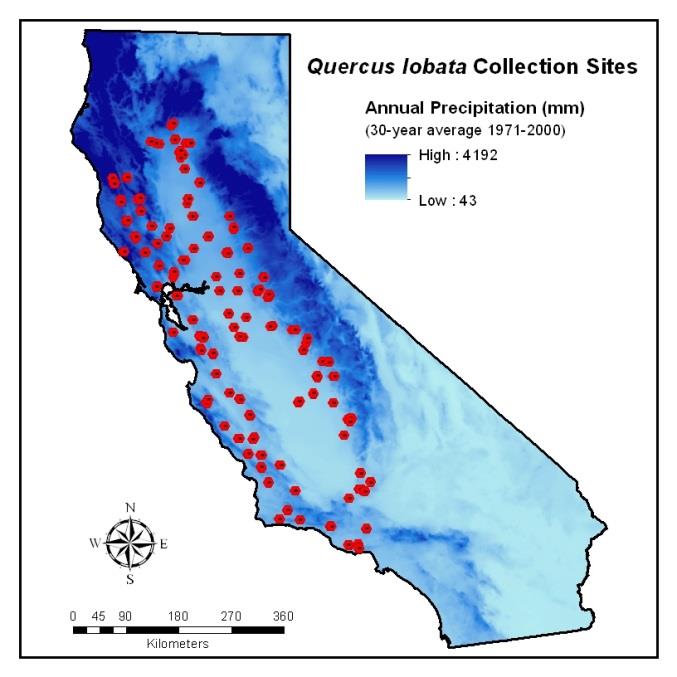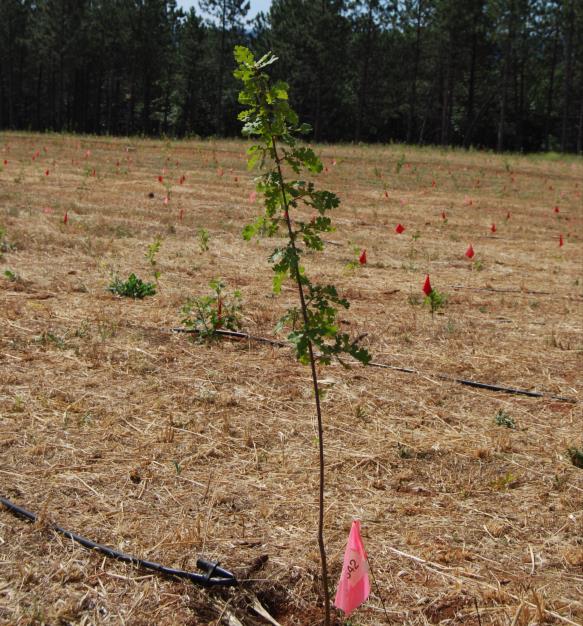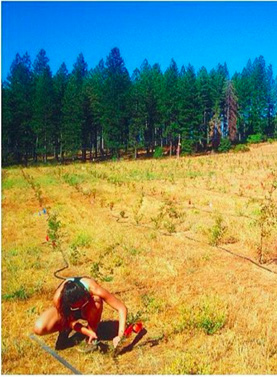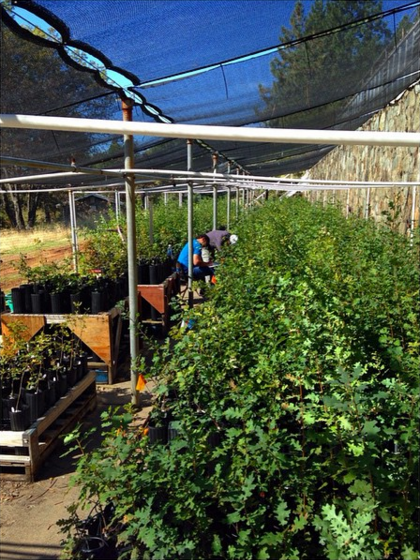Provenance Study
Our sequenced genome for valley oak is a tool that will allow us to examine closely the relationship between genetic variation across the entire genome, and observed traits from trees in the field. However, trait values are strongly associated with the environment where a tree is found. Therefore, traits need to be evaluated in a common garden setting. In 2012, we collected acorns from 694 maternal trees from 95 different collecting sites across the range of the species (see map below). The seedlings resulting from these acorns were transplanted into two field sites in the winter of 2014/15.
We are collecting trait data on these seedlings, including survival and growth. In addition, we have been examining the phenology of bud burst, and recording when trees start to grow in the spring. Using our reference genome, we plan to collect genomic data from the parental trees, and relate the traits we measured in a the common garden with variation across the entire genome. In this way, we’ll be able to identify SNPs, genes and alleles associated with the observed traits.
All growth data from the provenance test will be available publicly at the Center for Forest Provenance Data found here as well as the USFS R&D data archive.
Publications:
1) Delfino-Mix A, JW, PF Gugger, C Liang, VL Sork. In press. Establishing a range-wide provenance test in valley oak (Quercus lobata Née) at two California sites. Proceedings of the 7th California Oak Symposium: Managing Oak Woodlands in a Dynamic World. Visalia, CA. PDF link
2) Albarrán-Lara AL, JW Wright, PF Gugger, A Delfino-Mix, JM Peñaloza Ramírez, VL Sork. In press. Phenotypic variation in California populations of valley oak (Quercus lobata Née) along three elevation transects. Proceedings of the 7th California Oak Symposium: Managing Oak Woodlands in a Dynamic World. Visalia, CA. PDF link




